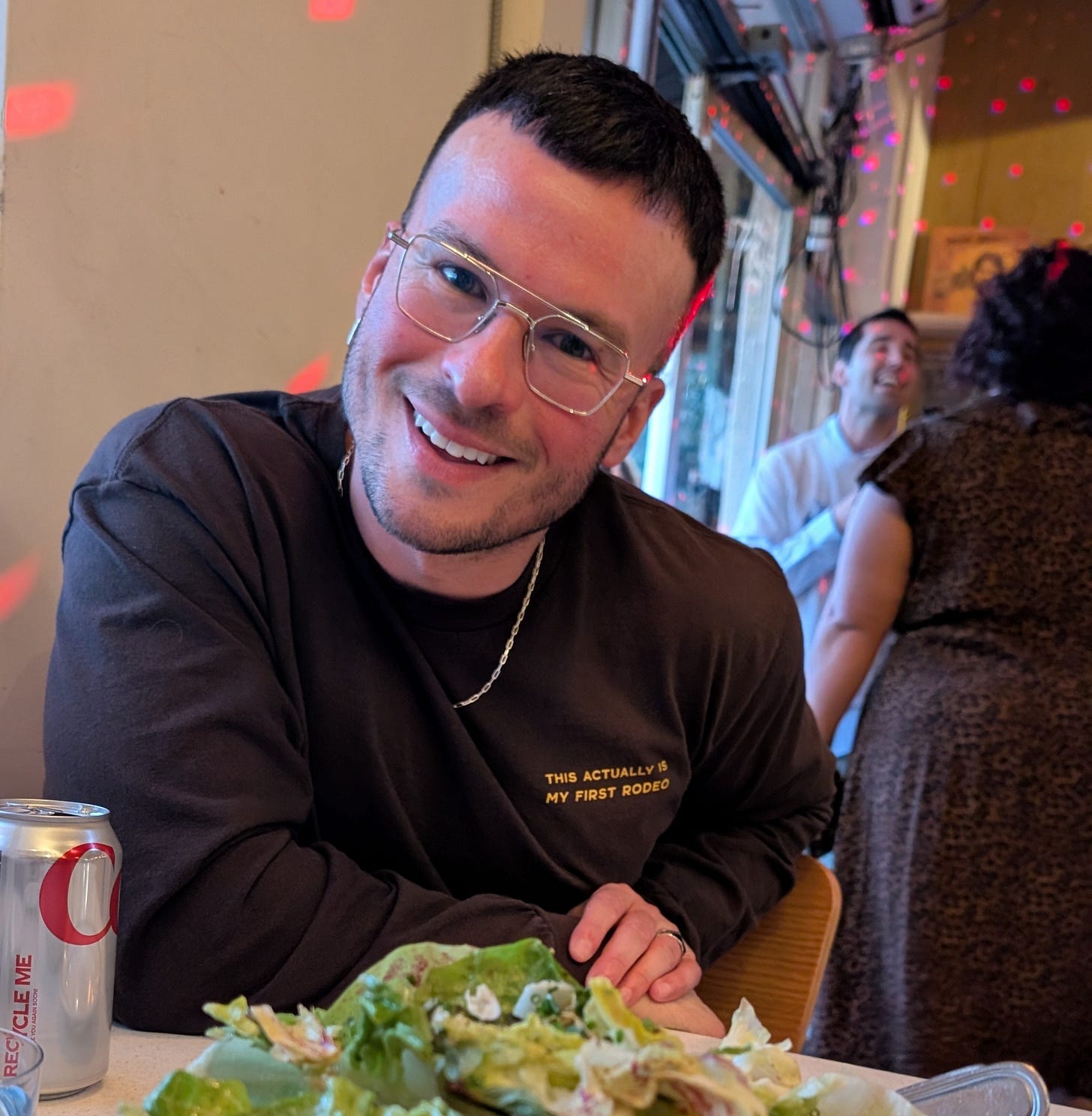Be the glitch in the matrix
A note on our shared strength
Last year, my fellow tenants formed a tenant’s association amid policy changes and mysterious fees from our landlord. We made it official with bylaws and a mission: To protect each other’s legal rights and challenge landlord actions we feel are predatory or unfair.
We pressured the landlord to keep our elevator operational and free to use. It had been “broken,” a.k.a. turned off and inaccessible, most of the four years I’ve lived here. ADA standards and the threat of legal action weakened their resolve.
The most valuable aspect of this new group formation was simple communication via a group text thread. I grasped the power of comparing notes and information from our property manager to other renters—about maintenance, leaks and mold problems, ringing carbon monoxide alarms, and an overflowing dumpster.
We knew our neighbors’ names and could share screenshots of the official word from our management company. Then, we could support and encourage one another.
This small example points to a larger truth: If we work together, we harness more power than we realize.
Most of the time, we’re living on our own virtual islands, immersed in our chosen entertainment and media. We are unable to disconnect from our personalized content algorithm to be present and face-to-face. This is a challenge given how pervasive phones, screens, and apps are in our daily lives—and how alienated they’ve made us.
The power and influence of the tech/political oligarchy depend on our participation. By disengaging from these platforms that thrive on our attention, we can disrupt their business models.
Two months ago, I removed Instagram, Grindr, and ShopStyle from my phone. I overused these apps and rarely felt better after using them. I still look at my phone a lot, but I’m not using it when I’m bored to fill my brain with extra information. Without any concern about missing out, I feel lighter and freer with my overall screen time and mental clarity.
All from not engaging.
What’s more powerful than not engaging? Not buying.
I haven’t had much money. Aside from a few events I didn’t attend and charming things I’d have liked to buy for my closet, cutting back my spending hasn’t been as difficult as I predicted.
Our attention (with our ears or eyes), dollars, and ability to organize and form social cohesion—these levers reclaim agency. One host used the term “be the glitch in The Matrix” on the Gay Men Going Deeper podcast, and it felt fitting.
Life goes on—there’s no singular fix. But we are powerful. We are crafty. The pressure is mounting.
Look at Elon Musk and the backlash against Tesla, the brand most tied to his likeness. Worldwide sales have slowed and people are vandalizing Tesla dealerships. Even Mardi Gras attendees booed a Tesla Cyber Truck in one of the parades.
Boycotts are mounting against big brand retailers for corporate greed or for dropping inclusionary policies like diversity, equity, and inclusion (DEI). This moment in history is intriguing.
Whatever happens, and it may get worse before it improves, let’s remember our humanity, shared identity, and ability to take small but meaningful actions to protect our communities and peace.
They may be all that really matter.



